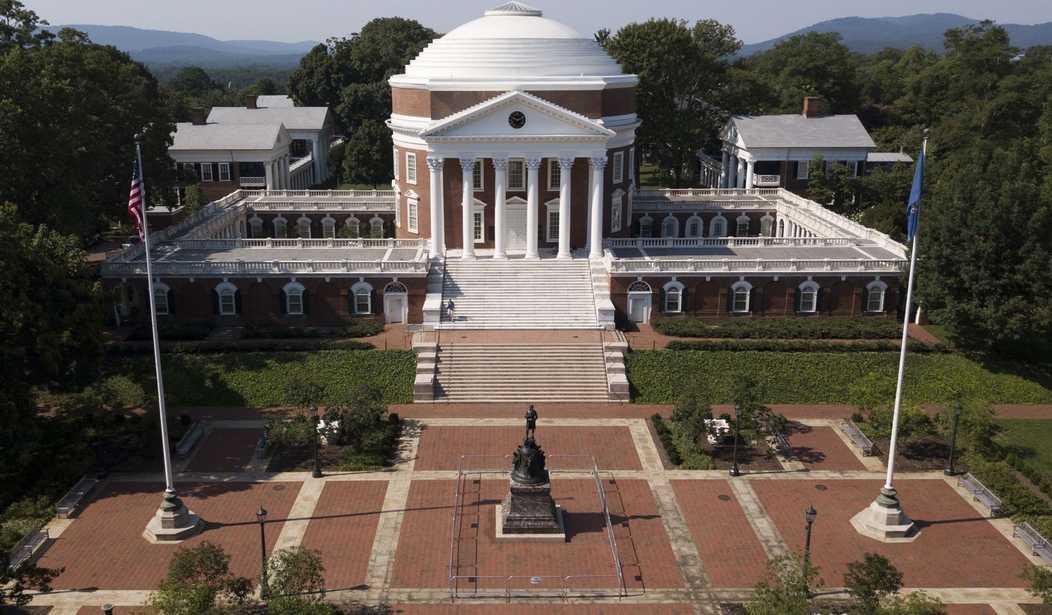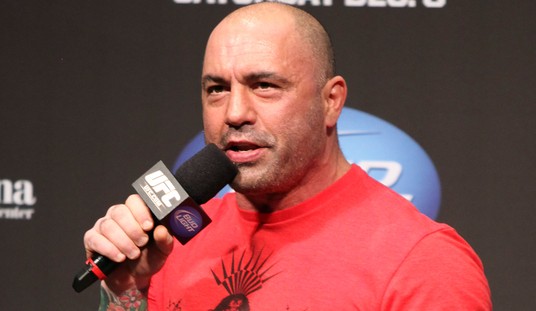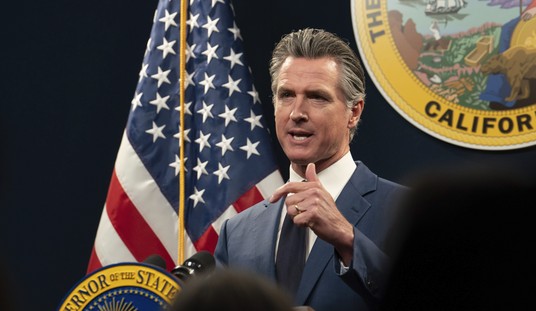Back in 2020, a viral controversy engulfed the University of Virginia, an institution that is not terribly unfamiliar with high-profile hoaxes. A white woman drove near a BLM protest and told the demonstrators they'd make "good f--ing speed bumps." This was an especially provocative alleged thing to say, given the context of an awful, deadly racial incident in Charlottsville back in 2017. The accusation roiled the UVA community and garnered national attention. There were demands for the accused young woman, an undergraduate at the school, to be expelled. The problem? A dearth of evidence.
Emma Camp reports at Reason (language warning):
The allegations first attracted attention after Zyahna Bryant, a 19-year-old UVA student and social justice activist, made them on Twitter during the demonstration. Her account would be retweeted more than 1,000 times. "The woman in this truck approached protesters in #Charlottesville, and told us that we would make 'good speedbumps,'" Bryant wrote. "She then called the police and started crying saying we were attacking her."...Bryant also posted a series of videos—not of the alleged "speed bump" comment itself, but of its aftermath. In the videos, an SUV reverses down a street while Bryant and several other protesters follow. "It's a Karen, it's a Karen," Bryant taunts. Charlottesville Beyond Policing, the group that organized the protest, gave more details in a Medium post shortly afterward. The woman "drove around the public works truck blocking the street that demonstrators were convened on, and felt compelled to say, not just once, but twice, that protesters would 'make good speed bumps,'" the post reported. "The second time she repeated it loudly to a Black protester and added 'good fucking speed bumps.'" Soon after Bryant's tweets, the allegation was picked up by local journalists.
Videos captured by protest attendees show that a small crowd, including Bryant, soon gathered to confront the woman, who had since retreated to her car and appeared to call the police. "Fuck you, I almost died in a fucking car accident…fucking cry bitch," one protester shouts in footage of the incident. "No one captured [the woman's] words on camera. However, WUVA can confirm she refused to leave the scene even though protesters were asking her to, and at no point were protesters blocking her car," the student-run website WUVA reported. It added that she "refused to leave until Charlottesville Police officers arrived at the scene in an unmarked minivan." Bryant sent her first battery of tweets within minutes of the incident, and outraged comments quickly began flowing in. "*She* called the police?? To do what? Report herself for making a threat??" UVA professor Jalane Schmidt replied. "if you know this karen, please take her keys. if she feels the overwhelming need to run people over, she shouldn't be driving," local journalist Molly Conger tweeted. Almost immediately, a search was launched to identify the young woman at the protest. It didn't take long: Her license plate appeared prominently in Bryant's videos. By the next morning, she had been identified as Morgan Bettinger, a rising senior at UVA.
The story goes on to recount the huge volume of high-decibel, hysterical denunciations of Ms. Bettinger that resulted from this allegation. The mob was in full throat. "While Bettinger eventually graduated from the university, she did so with a permanent mark on her record and a destroyed reputation," the story explains. "But despite two separate investigations, there's no evidence beyond Bryant's allegations that Bettinger said protestors would make "good fucking speed bumps" or that she threatened the protesters at all." There was no corroborating evidence that the 'speed bumps' comment ever happened. It was not captured on video. "A student-run investigation agreed with Bettinger's, not Bryant's, version of what transpired. A separate investigation by the school's civil rights office concluded that none of Bryant's allegations had sufficient evidence to support them." Those findings took a year to gather, and the results were largely buried, unlike the explosive, viral, initial allegation, which spread like wildfire.
Bettinger said she did use the term 'speed bumps,' but not to the protesters, and in the context of thanking a truck driver for protecting the protesters. She says she absolutely did not suggest human beings would have made "good" speed bumps at all. A kangaroo court UVA 'trial' found her guilty anyway, despite not actually proving (or even trying to suggest proof had been established) that she'd done what she was accused of. In fact, a subsequent official report documented that her primary accuser eventually admitted she may not have heard the sensational quote that blew up this whole firestorm after all:
Three of Bryant's four allegations were not corroborated by other witnesses, even though they allegedly occurred in front of a large crowd. Two separate times, according to the report, Bryant made an allegation, then later claimed she heard something else, or even that she wasn't sure she heard something at all. The fourth allegation—that Bettinger shouted that protesters would make "good speed bumps" over the top of her car—did have one other witness backing it up. But the report noted that this witness contradicted both themselves and Bryant during their interviews. Meanwhile, Bryant later changed her mind on this claim, telling investigators that she actually wasn't sure she heard Bettinger say this at all. Most damningly, the EOCR report found that it was "more likely than not" that Bryant learned that Bettinger had made a "speed bumps" remark not firsthand but during a moment Bryant herself had captured on video—a moment where she appeared to overhear a third-party discussion of Bettinger's alleged statements.
Ms. Bryant and UVA officials declined to comment for the record. Despite this vindication, Bettinger feels trapped, while her accuser has become famous: "Bryant has thrived since the incident. She received a glowing Washington Post profile in 2021, and last year she was named to Ebony's 'Power 100' list and was featured in a Juneteenth-themed post on Instagram's official page," Camp writes. "Meanwhile, Bettinger lives in a state of limbo. She had been a first-generation college student. Her father, a police officer, died of cancer six years before the incident. With such a severe mark on her disciplinary record, law school feels permanently out of reach. She still lives and works in the Charlottesville area—she won't say where, out of fear of being stalked at her new job." Does any of this seem like justice? Our society's incentive structure around these types of incidents and accusations are just terrible, as we continue to witness on a regular basis. Even when woke mob injustices are technically defeated, the mob mentality seems to prevail far too often. I'm not sure if a lawsuit would be a successful option here -- it very well might be -- but that appears to be one of the few paths toward shifting incentives.
Recommended
Speaking of mobs, I'll leave you with my reply to Congresswoman Alexandria Ocasio Cortez trolling Supreme Court Justice Samuel Alito, who recently sounded off about the threat environment against the Court's conservative majority (with the media participating in delegitimization efforts):
That [intimidation and pressure] campaign included unlawful assemblies outside justices’ homes, and that wasn’t the worst of it. “Those of us who were thought to be in the majority, thought to have approved my draft opinion, were really targets of assassination,” Justice Alito says. “It was rational for people to believe that they might be able to stop the decision in Dobbs by killing one of us.” On June 8, an armed man was arrested outside the home of Justice Brett Kavanaugh; the suspect was later charged with attempted assassination and has pleaded not guilty. A few pundits on the left speculated that the leaker might have been a conservative attempting to lock in the five-justice majority and overturn the constitutional right to abortion. “That’s infuriating to me,” Justice Alito says of the theory. “Look, this made us targets of assassination. Would I do that to myself? Would the five of us have done that to ourselves? It’s quite implausible.”
Please publish your home address so people can come “protest” you there. I’m sure you’d be super chill about that! https://t.co/WlpWXDWnuP
— Guy Benson (@guypbenson) April 29, 2023

























